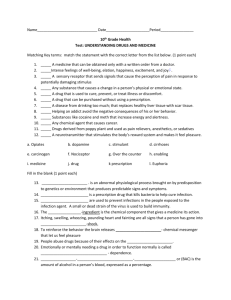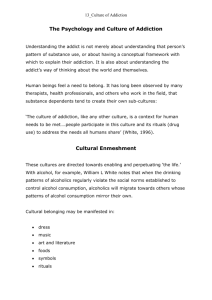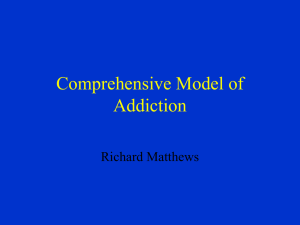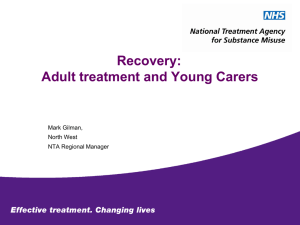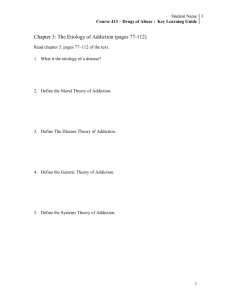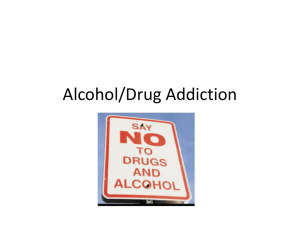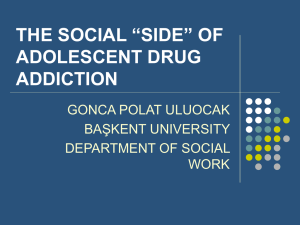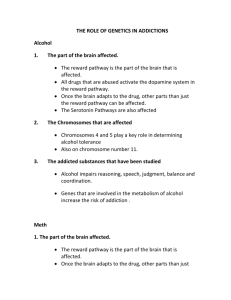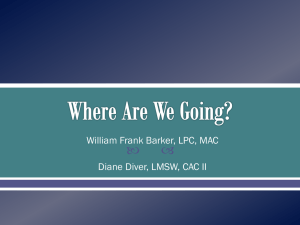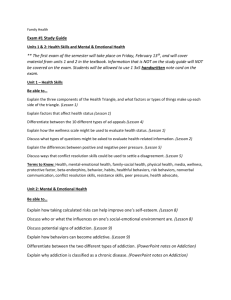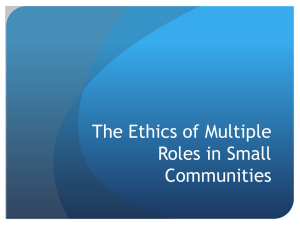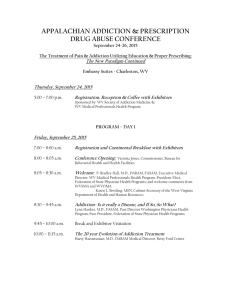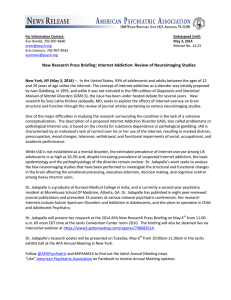Addicted to Food
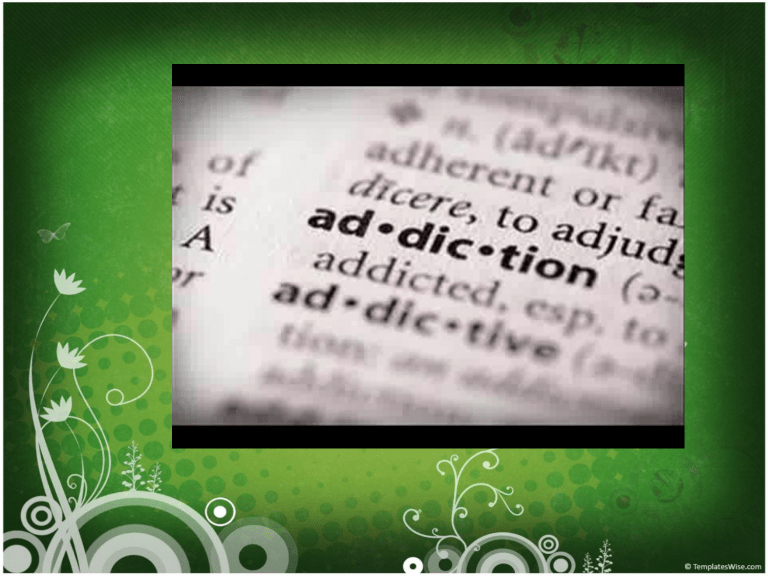
Addicted to Food…
Gaining Recovery
Tennie McCarty, LCDC, ADCIII, CEDC, CAS
Founder, CEO and co-owner
Shades of Hope Treatment Center
Speaker
Carrie L. Willey, PhD, LPC
Clinical Director
Shades of Hope Treatment Center
AMERICA’S EPIDEMIC
•2 out of 3 Americans are overweight or obese.
•More than 24 million
Americans suffer from eating disorders.
Can you be addicted to food?
"We found that the high food addiction group showed low inhibition.
They have less control in their consumption, and that's something we've seen also in addicts," Ashley Gearhardt said.
Leads to guilt and shame over behavior
ADDICTION CYCLE
Emotional problems or stresses
Attempt to sooth self, rid self of pain, or be in control
Overeaters numb with food
Bingers numb then rid self of pain
Anorexics starve to have control
Food Addiction is a disease…
Physical allergy
+
Mental Obsession
=
Hole in the Soul
The main problem is with our mind!
Food addiction affects the whole family…
If it’s not one thing, it’s your mother!
Father Hunger
How can we recover?
We must first accept that we have a disease.
Anorexia
Eating Disorder Spectrum
Bulimia
Compulsive
Overeating
Crave the “high”
Numb feelings, crave release
Numb out
FOOD ADDICT
(Chemical dependency)
Problem is physical, emotional & spiritual:
Abnormal response to certain foods
Physical craving
Mental obsession
Self-will run riot
Often trauma and weight issues
Solution is physical, emotional & spiritual:
Abstinence from binge foods and behaviors
Rigorous honesty about thoughts and feelings
A disciplined spiritual program such as a 12 step program
Food plan, exercise, lifestyle change, express feelings, resolve trauma & body image/acceptance of body
Using what process?
Surrender & grief process
We are perfectly, imperfect!
Substance Addiction Process Addiction
•Alcohol/Drugs
•Nicotine
•Food/Eating Disorders
•Sex/Love/Relationships
•Shopping/Credit Card Abuse
•Exercise
•Self Mutilation
•Internet and Thrill Seeking
•Gambling
Core Pain/Issues
Co-Dependence
Levels of Care
Thorough screening and assessment
Individual therapy and nutritional counseling
Support group
Out-patient services
Inpatient treatment - may be necessary if there is history of relapse
•Long-term care - for clients with chronic relapse
“It takes a village”
Q & A
Coming in
March, 2012 http://tenniemccarty.com




